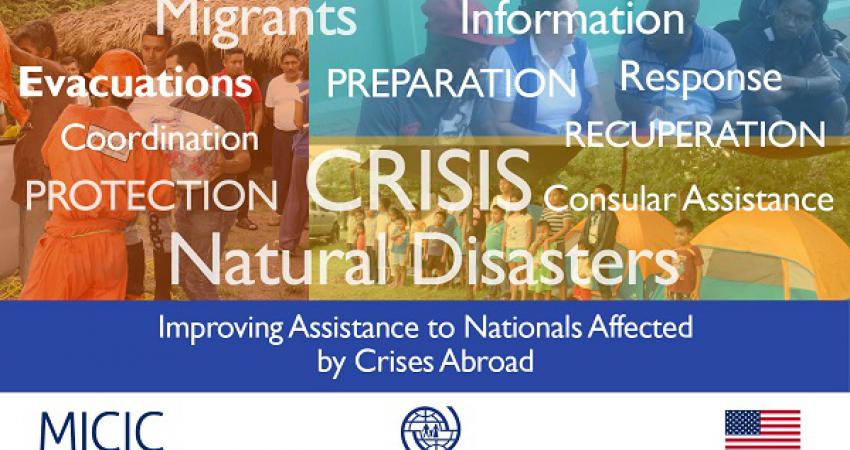Online Training Course for Consular Staff on Assistance to Nationals Affected by Crisis Abroad

Recent humanitarian crises have shown that migrants are often among those suffering the most during crisis situations caused by conflicts or natural disasters. With increasing international mobility and an unprecedented number of people displaced by conflicts, violence and disasters, most countries host some type of migrant population. In Mesoamerica there are more than 2 million immigrants.
The online training course "Improving Assistance to Nationals Affected by Crises Abroad ", hosted on the Learning Platform of the International Organization for Migration (IOM), targets mainly personnel of institutions mandated with assisting the country’s nationals abroad, such as staff of embassies and consulates, labor attaches, and members of dedicated crisis response teams.
It aims to strengthen their awareness on the specific challenges their nationals traveling, living, and working abroad face when confronted with crises in a country different from their own. It also aims to build the capacity of consular staff to address some of these challenges before, during and after crises, including through the use of specific tools.
"Migrants have a variety of vulnerabilities that are specific to them, but they also have capacities and characteristics that make them a fundamental part of the preparation for, response to and recovery from crises. The modules offer guides, practices and examples that will help the consular and diplomatic staff of countries of origin to effectively assist migrants, and at the same time take advantage of what this population has to contribute", explains Lorenzo Guadagno, Manager of the Migrants in Countries in Crisis Capacity Building Program which developed the course.
This online course is divided into 12 modules under a self-learning modality. At the end of the course, participants will have gained the necessary knowledge to:
- Identify the main conditions of vulnerability of migrants in crisis scenarios.
- Describe the main crises that may affect them.
- Identify the main legal and institutional frameworks necessary for the protection of and assistance to citizens affected by the crisis abroad.
- Know how to collect data on citizens abroad in order to report on crisis preparedness, response and recovery.
- Develop ways to effectively communicate with nationals traveling, living, and working abroad before, during and after crises.
- Identify the key measures of preparedness, response and recovery that would best help citizens abroad in the event of a crisis.
- Identify the ways in which migrants can contribute to the preparation for, response to and recovery from a crisis.
The course will study real cases of crisis that have affected the nationals of many countries, such as Hurricane Sandy and Japan´s tsunami. This allows for participants to incorporate the knowledge they have acquired on the national and international legal frameworks into their work, identify the key institutions and the relevant actors in the civil society and to be able to design plans of assistance and communication.
IOM´s Learning Platform on Migration also offers a vast range of virtual courses related to the work of the IOM, such as vulnerable migrant identification, human trafficking, women in migration, unaccompanied or separated migrant children, asylum seekers and refugees and human rights in migration among others.
This is an initiative of IOM´s Mesoamerica Program and the MICIC Program which are both funded by the United States Department of State. To access the platform, visit:
http://plataformadeaprendizaje.iom.int/
For more information on the Mesoamerica Program:
http://programamesoamerica.iom.int/es
To access the course in other languages and to access more MICIC capacity building tools:
http://micicinitiative.iom.int
For more information contact Patricia Ugalde at IOM Costa Rica. Tel: +506 2212 5328 Email: pugalde@iom.int